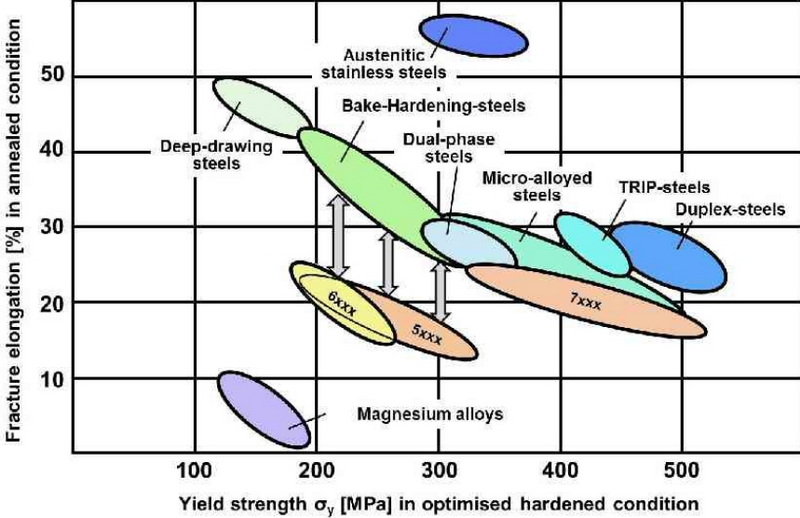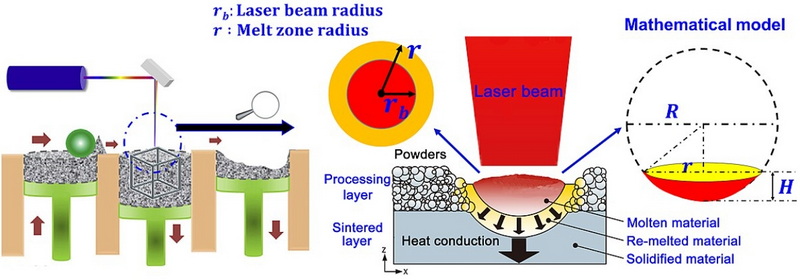Please Choose Your Language
Views: 222 Author: Carie Publish Time: 2025-03-06 Origin: Site








Content Menu
● Importance of Treatment Additives
>> Types of Treatment Additives
● Challenges and Future Directions
● FAQ
>> 1. What are the primary functions of alkali etching additives in aluminum surface treatment?
>> 2. How do grain refiners enhance aluminum alloys?
>> 3. What methods are used to evaluate the corrosion resistance imparted by treatment additives?
>> 4. What are some environmental challenges associated with the use of treatment additives?
>> 5. How can the effectiveness of treatment additives be measured in terms of mechanical properties?
In the realm of aluminum processing, treatment additives play a crucial role in enhancing the properties and performance of aluminum alloys. These additives are used to refine grain structures, improve mechanical strength, enhance corrosion resistance, and control solidification characteristics. The effectiveness of treatment additives can significantly impact the quality and efficiency of aluminum products. This article will delve into the importance of measuring the effectiveness of treatment additives in aluminum processing, focusing on Treatment Additives for Aluminum Processing.

Treatment additives are essential in aluminum processing as they improve the surface quality, corrosion resistance, and overall longevity of aluminum products. They are used in various stages of aluminum processing, including smelting, surface treatment, and finishing. The strategic use of these additives can enhance the mechanical properties of aluminum alloys, making them more suitable for diverse applications such as aerospace, automotive, and construction.
For instance, in the aerospace industry, the use of treatment additives can ensure that aluminum components meet stringent standards for strength and durability, which is critical for safety and performance. Similarly, in the automotive sector, additives help in producing lightweight yet robust aluminum parts that contribute to fuel efficiency and vehicle safety.
1. Alkali Etching Additives: These are commonly used in aluminum surface treatment to remove oxide layers and impurities, thereby improving the surface quality and reactivity for subsequent processes like anodizing or coating.
2. Grain Refiners: These additives help in controlling the grain size of aluminum alloys, which is crucial for improving mechanical strength and reducing defects during casting.
3. Corrosion Inhibitors: These additives enhance the corrosion resistance of aluminum by forming a protective layer on the surface, reducing the risk of chemical reactions that lead to corrosion.
4. Solidification Modifiers: These additives influence the solidification process of aluminum alloys, helping to control the formation of eutectic phases and improving the microstructure.
Measuring the effectiveness of treatment additives involves several key steps:
1. Surface Quality Assessment: The surface quality of aluminum products after treatment can be assessed using techniques like profilometry to measure roughness and optical microscopy to observe surface morphology.
2. Mechanical Property Testing: Tensile strength, hardness, and impact resistance tests are conducted to evaluate the mechanical properties enhanced by treatment additives.
3. Corrosion Resistance Evaluation: Accelerated corrosion tests, such as salt spray tests, are used to assess the corrosion resistance imparted by additives.
4. Microstructural Analysis: Techniques like scanning electron microscopy (SEM) and transmission electron microscopy (TEM) are employed to examine the microstructure and assess how additives affect grain size and phase distribution.

Despite the benefits of treatment additives, there are challenges related to environmental sustainability and regulatory compliance. Future research should focus on developing eco-friendly additives that not only enhance aluminum properties but also minimize environmental impact. Additionally, advancements in nanotechnology and biotechnology could lead to the development of innovative additives with improved performance and reduced toxicity.
Moreover, the integration of digital technologies, such as artificial intelligence and machine learning, can optimize the use of treatment additives by predicting their effects on aluminum properties based on historical data and real-time process conditions. This predictive approach can help in achieving consistent quality while reducing waste and energy consumption.
Several case studies illustrate the successful application of treatment additives in enhancing aluminum product performance:
1. Aerospace Industry: A leading aerospace manufacturer used a specialized grain refiner to improve the mechanical strength of aluminum alloys used in aircraft components, resulting in enhanced durability and reduced maintenance costs.
2. Automotive Sector: An automotive company employed corrosion inhibitors to protect aluminum body panels from corrosion, leading to improved vehicle longevity and reduced warranty claims.
3. Construction Industry: A construction materials supplier utilized solidification modifiers to improve the microstructure of aluminum alloys used in building frames, enhancing structural integrity and reducing material usage.
In conclusion, measuring the effectiveness of treatment additives in aluminum processing is crucial for ensuring the quality and performance of aluminum products. By understanding the role of different types of additives and employing rigorous testing methods, manufacturers can optimize their use of Treatment Additives for Aluminum Processing to achieve superior surface quality, mechanical strength, and corrosion resistance. This not only enhances product longevity but also contributes to more efficient and sustainable manufacturing processes.

Alkali etching additives primarily function to remove oxide layers and impurities from the aluminum surface, improving surface quality and reactivity for subsequent treatments like anodizing or coating.
Grain refiners enhance aluminum alloys by controlling grain size, which improves mechanical strength and reduces casting defects, leading to more uniform and reliable products.
Corrosion resistance is typically evaluated using accelerated tests such as salt spray tests, which simulate harsh environmental conditions to assess the protective effects of additives.
One of the environmental challenges is ensuring that additives are eco-friendly and do not contribute to pollution or harm during their production and disposal. This requires developing additives with minimal environmental impact.
The effectiveness of treatment additives in enhancing mechanical properties can be measured through tests such as tensile strength, hardness, and impact resistance, which provide quantitative data on the improvements achieved.
Italy plays a crucial role in the European and global stannous sulfate industry, with leading manufacturers and suppliers offering top-quality, customized products for electroplating, glass, construction, water treatment, pharmaceuticals, and other advanced sectors. Their compliance, innovation, and sustainable practices make them partners of choice for international clients seeking reliable chemical solutions that meet stringent quality and environmental standards.
This article highlights the top stannous sulfate manufacturers and suppliers in the UK, focusing on their product quality, industrial applications, and market presence. It emphasizes the UK's strength in producing high-purity stannous sulfate for surface treatment, water treatment, and electroplating industries. Key players like REAXIS and Atotech lead the market with innovative solutions, while OEM support and regulatory compliance remain core advantages of UK suppliers. The article also addresses the compound's uses and includes a detailed FAQ to assist industry professionals.
Germany leads Europe in Stannous Sulfate manufacturing, supplying high-purity, reliable chemicals essential for electroplating, glass production, pharmaceuticals, and more. Key German suppliers like TIB Chemicals AG, MCC Menssing, Univar Solutions GmbH, and VMP Chemiekontor GmbH offer tailored solutions, strict quality control, and global distribution for diverse industrial demands.
This article explores the top stannous sulfate manufacturers and suppliers in Europe, highlighting leading companies like TIB Chemicals and Chimica Panzeri. It details production technologies, quality standards, industry applications, and OEM services, offering insights for markets requiring high-purity stannous sulfate chemicals.
This article explores the top stannous sulfate manufacturers and suppliers in France, highlighting their product quality, compliance with environmental standards, customized OEM services, and key industrial applications such as aluminum surface treatment, electronics, pharmaceuticals, and wastewater management.
This article explores the top stannous sulfate manufacturers and suppliers in America, detailing key companies, product forms, industries served, manufacturing processes, quality controls, and environmental considerations. It highlights the benefits of sourcing stannous sulfate locally with customization and technical support options. Insightful images illustrate stannous sulfate forms, production, and applications in industrial processes. Finally, a FAQ section addresses common queries related to stannous sulfate use and supply.
This comprehensive report explores Japan's top nickel sulfate manufacturers and suppliers, highlighting their production capabilities, market positions, and product applications. Featuring companies like Sumitomo Metal Mining and SEIDO Chemical Industry, the article delves into manufacturing processes, industry uses, and environmental practices, reflecting the pivotal role of Japanese firms in the advancing global nickel sulfate market.
South Korea is a leading global hub for nickel sulfate manufacturing, dominated by Korea Zinc and KEMCO with a combined annual capacity of 80,000 tons. Leveraging advanced smelting technologies and government-supported strategic status, these manufacturers supply high-quality nickel sulfate for electric vehicle batteries, surface treatment, and chemical industries. South Korean suppliers offer comprehensive OEM services to international clients, meeting growing global demand with innovation, sustainability, and quality.
This article provides a comprehensive overview of leading nickel sulfate manufacturers and suppliers in Portugal, covering their technological capabilities, product lines, market roles, and strict compliance with international standards. Highlighting diverse applications from electroplating to battery manufacturing, it showcases Portugal’s growing importance in the global nickel sulfate supply chain. Accompanied by relevant images, the article emphasizes sustainability, innovation, and quality as cornerstones of the Portuguese chemical sector.
This article explores the top nickel sulfate manufacturers and suppliers in Spain, highlighting their product offerings, quality standards, and strategic advantages. It covers Spanish industry applications, OEM services, and explains why Spain is a preferred sourcing hub for global chemical buyers. The article also includes detailed FAQs and relevant images to provide a comprehensive understanding of the nickel sulfate market in Spain.
Italy’s nickel sulfate manufacturing and supply chain is advanced, diverse, and globally integrated—supporting key industries like batteries, electroplating, and catalysts. With leading companies, customized services, and sustainable practices, Italian nickel sulfate manufacturers and suppliers are crucial to meeting the world’s growing demand for this essential chemical.
This article provides an in-depth overview of the top nickel sulfate manufacturers and suppliers in Russia, focusing on major companies like Norilsk Nickel, their production processes, market presence, environmental initiatives, and the diverse industrial applications of nickel sulfate. It serves as a valuable resource for international businesses looking to source high-quality nickel sulfate from Russia.
Aluminum alloys have become indispensable materials in modern industry, owing to their light weight, high strength-to-weight ratio, corrosion resistance, workability, and versatility. However, their durability—especially when used in challenging environments—is critically dependent on
Electrophoretic coatings, often referred to as *E-coatings* or *electrophoretic deposition (EPD)*, have revolutionized surface finishing in the modern manufacturing landscape. They blend chemistry, material science, and advanced technology to create coatings that are durable, uniform, and environmen
Discover Europe's most prominent Nickel Sulfate Manufacturers and Suppliers, including sustainability-focused innovators and rapid-response distributors serving the EV, electroplating, and advanced materials sectors. Learn about top companies, key trends, market drivers, and FAQs to inform your industrial chemical sourcing decisions. This comprehensive guide highlights the critical role nickel sulfate plays in Europe’s green industrial future.
This article details France’s leading role in nickel sulfate production, covering major manufacturers and suppliers, innovative production methods, sustainability commitments, and the industry’s critical role in green technology supply chains. It also examines market drivers, regulatory compliance, and supply chain strategies while answering common industry questions. The content is especially relevant for businesses seeking OEM solutions for aluminum profile treatment and battery production.
This comprehensive guide details the leading Nickel Sulfate Manufacturers and Suppliers in Germany, highlighting their strengths, product applications, and why Germany is a global leader. It covers selection criteria, market trends, and answers to key FAQs for buyers and industry professionals.
This article offers a comprehensive guide to the UK’s top Nickel Sulfate Manufacturers and Suppliers, highlighting industry applications, leading brands, and sourcing strategies in the rapidly growing British and global markets. From surface finishing to electric vehicle batteries, discover how to select the right partner and stay ahead of industry shifts.
This article explores the top Nickel Sulfate Manufacturers and Suppliers in America, highlighting their key products, application areas, and essentials of reliable sourcing. With detailed industry profiles, market trends, future outlooks, and FAQs, it serves as a vital comprehensive resource for businesses seeking high-quality nickel sulfate and dependable partnership.
Choosing the best chemical raw materials for aluminum profiles is **critical to ensuring strength, durability, corrosion resistance, and sustainability** in the final products. The selection impacts not only the mechanical and aesthetic qualities but also influences cost-effectiveness, production ef
